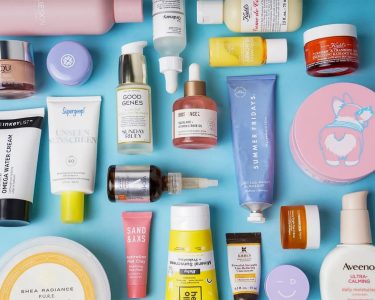Are you tired of experiencing tooth pain every time you eat or drink something? Tooth sensitivity and discomfort can be caused by certain foods and drinks that are known as “tooth-hurting habits.” These habits not only affect your oral health but also hinder your ability to enjoy your favorite meals. In this blog post, we’ll discuss why these habits are bad for your teeth, the foods and drinks to avoid, and tips for cutting back on them. So sit tight and get ready to improve your oral health by saying goodbye to tooth-hurting habits!
What are tooth-hurting habits?
Tooth-hurting habits are unhealthy habits that can cause damage to your teeth and lead to various dental problems. These habits include consuming foods or drinks that are high in sugar, acid, or starch content. Some examples of food and drinks that fall under this category include candy, soda, energy drinks, sports drinks, citrus fruits and juices.
Chewing on hard objects such as ice cubes or pen caps can also harm your teeth by chipping or cracking them. Biting nails is another habit that can be detrimental to oral health as it puts excessive stress on the front teeth leading to enamel wear and tear.
Poor brushing techniques like not brushing properly after meals or using a toothbrush with bristles that are too hard for your gums can contribute to damaging effects on teeth’s surface over time.
It’s important to recognize these tooth-hurting habits so you can take steps towards avoiding them in order to maintain good oral health. By understanding why these habits are bad for our overall wellbeing we could make sure our smiles stay bright & healthy!
Why are they bad for your teeth?
Tooth-hurting habits are bad for your teeth because they can cause a variety of dental problems. One of the main issues is tooth decay, which occurs when bacteria in your mouth feed on sugars and produce acids that erode your tooth enamel.
Another problem caused by these habits is gum disease, which can result from the buildup of plaque and tartar on the teeth. This can lead to inflammation, bleeding gums, and even tooth loss if left untreated.
Certain foods and drinks also have a high level of acidity or sugar content that can damage your teeth over time. Acidic beverages like soda, sports drinks, and citrus juices weaken the enamel on your teeth while sugary snacks like candy and cookies provide food for bacteria to thrive.
In addition to causing physical damage to your teeth, tooth-hurting habits may also contribute to bad breath or stained teeth. Poor oral hygiene practices in combination with unhealthy eating/drinking habits only exacerbate these problems further.
It’s important to be mindful of what you’re consuming regularly as certain foods/drinks pose a greater risk than others. By cutting back on these harmful items (and implementing good oral hygiene), you’ll help keep those pearly whites healthy for years to come!
Foods and drinks to avoid
When it comes to maintaining good oral health, avoiding certain foods and drinks is essential. Some of the biggest culprits for tooth decay and erosion include sugary or acidic items. Here are some specific examples:
Sodas and sports drinks: These beverages are loaded with sugar, which can stick to your teeth and cause cavities. Additionally, many sports drinks have high levels of acidity that can erode enamel over time.
Candy: Most types of candy contain high amounts of sugar that promote bacterial growth in the mouth. Sticky candies like caramels and gummies are especially harmful because they cling to teeth longer than other treats.
Citrus fruits: While citrus fruits like oranges and grapefruits are packed with vitamin C, they also have a lot of acid that can wear away tooth enamel if consumed frequently.
Alcohol: Alcoholic beverages not only dehydrate you but also reduce saliva production in the mouth, which makes it easier for bacteria to thrive on your teeth.
Starchy snacks: Chips, crackers, breadsticks all tend to get stuck between your teeth allowing more food particles that attract bacteria into those spaces
It’s important to remember moderation when consuming these items as well as maintaining proper dental hygiene practices such as brushing twice a day, flossing daily and visiting the dentist regularly.
Tips for cutting back on tooth-hurting habits
Cutting back on tooth-hurting habits can be challenging, but it is vital for maintaining good oral health. Here are some tips to help you reduce your consumption of foods and drinks that are harmful to your teeth:
1. Substitute sugary drinks with water: Drinking plenty of water throughout the day can help flush out bacteria in your mouth and keep you hydrated without harming your teeth.
2. Avoid snacking between meals: Frequent snacking encourages the production of acid in your mouth, which erodes tooth enamel over time.
3. Use a straw when drinking sugary beverages: Using a straw can minimize contact between sweetened liquids and teeth, reducing the risk of cavities.
4. Chew sugar-free gum after meals: Chewing sugar-free gum stimulates saliva production, which helps neutralize acids produced by bacteria in your mouth.
5. Brush twice daily and floss regularly: Practicing good oral hygiene habits is crucial for preventing cavities and other dental problems caused by tooth-hurting foods and drinks.
By following these simple tips, you can cut back on tooth-hurting habits while still enjoying a healthy diet that benefits both your overall health and dental hygiene.
Conclusion
Cutting back on tooth-hurting habits is crucial for maintaining good oral health. Avoiding sugary and acidic foods and drinks can help prevent tooth decay and erosion. Incorporating healthier alternatives into your diet, such as water, crunchy fruits and vegetables, and dairy products can also benefit your teeth.
Remember to practice good dental hygiene by brushing twice a day with fluoride toothpaste, flossing regularly, and visiting the dentist at least twice a year for check-ups.
By making small changes to your diet and lifestyle, you can protect your teeth from damage caused by harmful habits. Your smile will thank you in the long run!




